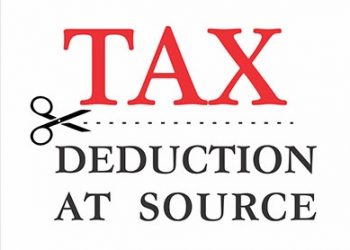The budget for F.Y. 2020-21 was announced on 01.02.2020 by Mrs. Nirmala Sitharaman. In this budget there were two main amendments made, focusing on start up in India:
- Regarding 100% deduction of profit for start-up u/s 80IAC.
- Relaxation for shares received under ESOP for start-up.
Amendment in section 80-IAC: The crux of the section are as under:
Where the gross total income of an assessee, being an eligible start- up, includes any profits and gains derived from eligible business, there shall, in accordance with and subject to the provisions of this section, be allowed, in computing the total income of the assessee, a deduction of an amount equal to one hundred per cent of the profits and gains derived from such business for three consecutive assessment years.
The deduction specified in sub-section (1) may, at the option of the assessee, be claimed by him for any three consecutive assessment years out of seven years beginning from the year in which the eligible start-up is incorporated.
Eligible start-up” means a company or a limited liability partnership engaged in eligible business which fulfils the following conditions, namely:—
(a) it is incorporated on or after the 1st day of April, 2016 but before the 1st day of April, [2021];
(b) the total turnover of its business does not exceed twenty-five crore rupees [in the previous year relevant to the assessment year for which deduction under sub-section (1) is claimed]; and
(c) it holds a certificate of eligible business from the Inter-Ministerial Board of Certification as notified in the Official Gazette by the Central Government;
There have been two major changes after Budget 2020 in the above section:
- Now the start up can claim 100% deduction in 3 consecutive years out of 10 years instead of 7 years.
- The turnover limit has been increased from 25 crores to 100 crores.
Changes in ESOP provisions for start up:
The second important amendment is with regard to ESOP issued by start up. In start up culture its a normal phenomenon where the start up issues shares to its employees instead of normal salary. Such ESOP was taxed as perquisite when they were issued. However in the budget speech it was announced by our Finance minister to defer such burden of tax on employees of start-up:
“During their formative years, Start-ups generally use Employee Stock Option Plan (ESOP) to attract and retain highly talented employees. ESOP is a significant component of compensation for these employees. Currently, ESOPs are taxable as perquisites at the time of exercise. This leads to cash-flow problem for the employees who do not sell the shares immediately and continue to hold the same for the long term. In order to give a boost to the start-up ecosystem, I propose to ease the burden of taxation on the employees by deferring the tax payment by five years or till they leave the company or when they sell their shares, whichever is earliest.”
Thus, as per the proposed by our Finance minister the taxation of such shares as perquisites has been deferred for collection of tax for upto 14 days after 48 months from the end of relevant assessment year when it was exercised or when the shares are sold or when the employee leaves the company whichever is earlier.
Relevant amendment has been made by amendment to section 156, 191 and 192 which deals with collection/ payment of tax.
However no changes has been made to section 17 which deals with perquisites.
If you need assistance you can ask a question to our expert and get the answer within an hour or post a comment about your views on the post and also subscribe to our newsletter for latest weekly updates.













